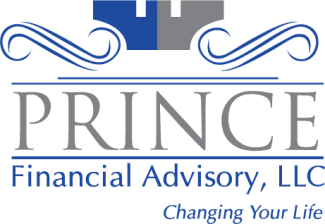8 Tips for Paying High Medical Bills
Next to the IRS, the most formidable and intimidating institutions people will face are the insurance companies and the medical care complex. Both are at the root of increasing medical costs and both are intent on making sure their bottom lines are forever expanding. Never mind that high medical bills are the number one cause of bankruptcies in the U.S. With health insurance paying an ever decreasing amount of costs, and medical costs surging skyward, an increasing number of people are finding their fragile finances squeezed with fewer options to cover high medical bills. Before you slip into despair, check out these 8 tips for paying high medical bills; they could just save you from financial disaster.
Everything is Negotiable
If you receive a medical bill that makes your eyes bulge, don’t panic and don’t go into hiding. Make the call immediately to your doctor or the hospital. Medical providers would rather not have to chase you down with legal procedures or collections. They stand to get at least as much of their charges paid by working with you. Keep in mind, that providers have several different levels of billing depending on how they expect to get paid – from Medicare or Medicaid or insurance companies that have negotiated rates. The billed charges you see are probably not the lowest the providers are willing to bill.
Strike a Bargain Up Front
The same is true and even more effective before you have a medical procedure. If you know ahead of time that your insurance won’t cover a procedure, work out the pricing ahead of time with the provider. Again, what they might quote initially is likely to be the “retail” cost. But providers have negotiated rates that can be a fraction of what they quote you. You can also ask about alternative “low cost” procedures about which many providers will not tell you unless you do ask. And, when they learn that you are shopping around, they may be more willing to deal.
Cash is King
Whether you’re negotiating a medical bill, or trying to strike a deal up front, cash talks. After you negotiate your best deal, offer to pay in cash if you have it and you could shave some more off the charges.
Scrutinize the Bill
It is not at all uncommon for providers or their billing departments to make significant errors. Double charging or charging for procedures not even done is commonplace. You might also find charges for additional services such as supplies and room fees are code word for “miscellaneous” which can add up. Make sure you get an itemized list of all charges. Line dates up with charges – you may not have even been there on the date of a charge. If a charge doesn’t look right, question it, but do it nicely.
Offer a Payment Plan
Again, providers would rather work with you than go through the expense and effort of collections. Most providers will work with you, either up front or after billing, to set up a payment plan. You should be able to arrange it to meet your budget.
Use a 0% Balance Transfer Credit Card
It’s generally not recommended that you pay high medical bills with a credit card, as the high interest charges could make matters worse. But, if you can get your hands on a 0% balance transfer credit card with a 12 to 18 month introductory period, you can make a big dent in your medical bill and pay it down with low or zero costs. You would have to have pretty good credit, however, in order to obtain the most favorable terms.
Get Some Help
If you’re facing what looks like an insurmountable situation, you should get someone on your team that can help you through it. Health care advocates are trained to go places in insurance companies and the medical care complex that consumers can’t. They’re aware of your rights and the benefits that might be available in your state. They can provide the shortest path for disputes or appeals and they advise you along the way. Health advocates may be available through state-funded programs, or you can hire a private advocate. Some charge hourly, and others work on “consignment” meaning they will collect a small portion of your savings or reimbursement only after the issue is resolved in your favor.
Be Persistent
Remember, you are dealing with insurance companies and providers who are in business to protect their bottom line. Fight a medical bill requires a deliberate campaign of calls and letter-writing all the way up to the top. It could take months, or even years, but, in the end, right beats might.
*This content is developed from sources believed to be providing accurate information. The information provided is not written or intended as tax or legal advice and may not be relied on for purposes of avoiding any Federal tax penalties. Individuals are encouraged to seek advice from their own tax or legal counsel. Individuals involved in the estate planning process should work with an estate planning team, including their own personal legal or tax counsel. Neither the information presented nor any opinion expressed constitutes a representation by us of a specific investment or the purchase or sale of any securities. Asset allocation and diversification do not ensure a profit or protect against loss in declining markets. This material was developed and produced by Advisor Websites to provide information on a topic that may be of interest. Copyright 2022 Advisor Websites.

